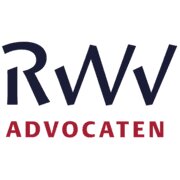Best Government Relations & Lobbying Lawyers in Leiden
Share your needs with us, get contacted by law firms.
Free. Takes 2 min.
List of the best lawyers in Leiden, Netherlands
About Government Relations & Lobbying Law in Leiden, Netherlands
Government Relations & Lobbying law refers to the set of legal frameworks that regulate how individuals, organizations, and interest groups interact with government officials and public bodies to influence policy decisions, legislation, or administrative action. In Leiden, which is known for its strong academic, business, and social sectors, these activities are common as local, national, and European Union regulations often impact regional interests. The law aims to promote transparency, ethical behavior, and responsible advocacy, ensuring that the decision-making process is fair and in line with democratic principles.
Why You May Need a Lawyer
Engaging in Government Relations & Lobbying can be complex due to the layered legal requirements at the municipal, provincial, national, and European levels. Common situations where legal assistance might be needed include:
- Helping organizations and associations navigate lobbying registration and disclosure requirements
- Drafting or reviewing contracts and agreements for advocacy campaigns
- Advising on permissible interactions with public officials
- Defending against allegations of unethical or illegal lobbying
- Guiding compliance with anti-corruption and transparency regulations
- Representing clients in governmental or administrative hearings
- Assistance with submissions to policy consultations or legislative proposals
Local Laws Overview
In Leiden, Government Relations & Lobbying is subject to laws at multiple jurisdictional levels:
- The city of Leiden and Province of South Holland have codes of conduct for public officials and policies on conflicts of interest
- Dutch national law (Wet op de Openbaarheid van Bestuur, Wob) regulates access to government information and requires transparency around lobbying efforts
- Specific lobbying registration is not required under Dutch law as in some other countries, but voluntary registers exist and transparency is encouraged
- For activities at the European level, the EU Transparency Register applies to organizations and professionals lobbying the European Commission or Parliament
- Anti-corruption, anti-bribery, and ethical conduct standards are rigorously enforced under the Dutch Penal Code
Frequently Asked Questions
What is considered lobbying in Leiden?
Lobbying generally refers to any activity intended to influence public officials or policies. In Leiden, this can include meetings with lawmakers, submitting policy papers, or mobilizing grassroots support, whether for the municipality, province, or national government.
Is registration required to lobby in Leiden?
The Netherlands does not currently have a mandatory public lobbying register for domestic lobbying. However, voluntary registers and strict compliance with transparency and disclosure requirements are recommended.
Are there codes of conduct for lobbyists?
While not legally mandated, many professional associations, government bodies, and the European Union provide or require adherence to codes of conduct that promote ethical lobbying.
Can anyone act as a lobbyist in Leiden?
Yes, but it is important to act within legal boundaries. Individuals, companies, NGOs, and trade associations can all engage in lobbying, provided they do so transparently and ethically.
What actions are prohibited in government relations?
Bribery, offering gifts or advantages in exchange for favors, and misrepresentation of interests are strictly prohibited under Dutch and EU law. Violations can result in criminal prosecution.
What are my disclosure obligations?
While there is no statutory requirement for all lobbying activities, full disclosure is expected when communicating with public bodies, and transparency is considered good practice, especially for organizations.
How do I ensure compliance with anti-corruption laws?
Avoid any activity that could be seen as attempting to improperly influence public officials. Maintain clear records, adhere to ethical codes, and consult with a lawyer if unsure about a particular course of action.
How does EU law affect lobbying in Leiden?
If your lobbying activities target EU institutions, you must comply with the EU Transparency Register and related conduct rules, in addition to Dutch laws and local regulations.
Can a lawyer represent me before government bodies?
Yes, lawyers can represent individuals and organizations before administrative authorities, provide legal opinions, negotiate with officials, and assist with formal submissions.
What are the penalties for illegal lobbying activities?
Penalties can range from administrative sanctions and fines to criminal charges, depending on the severity and nature of the violation. Reputational risks are also significant.
Additional Resources
Those seeking further information or assistance may consult the following resources:
- Leiden Municipality (Gemeente Leiden) for local codes of conduct and policy consultation opportunities
- Transparency International Netherlands for anti-corruption guidance
- Ministry of the Interior and Kingdom Relations (BZK) for national governance standards
- Netherlands Bar Association (Nederlandse Orde van Advocaten) for finding qualified lawyers
- European Union Transparency Register for EU-level lobbying
- Dutch House of Representatives (Tweede Kamer) for guidance on interactions with parliamentarians
Next Steps
If you believe you require legal assistance relating to Government Relations & Lobbying in Leiden, consider the following steps:
- Clearly define your objectives and the scope of your intended lobbying or advocacy activities
- Gather relevant documentation such as correspondence, organizational policies, or draft materials
- Identify any government bodies, officials, or regulatory frameworks involved in your matter
- Contact a legal professional specializing in government relations, public law, or administrative law
- Prepare a list of questions and concerns for your initial consultation
Lawzana helps you find the best lawyers and law firms in Leiden through a curated and pre-screened list of qualified legal professionals. Our platform offers rankings and detailed profiles of attorneys and law firms, allowing you to compare based on practice areas, including Government Relations & Lobbying, experience, and client feedback.
Each profile includes a description of the firm's areas of practice, client reviews, team members and partners, year of establishment, spoken languages, office locations, contact information, social media presence, and any published articles or resources. Most firms on our platform speak English and are experienced in both local and international legal matters.
Get a quote from top-rated law firms in Leiden, Netherlands — quickly, securely, and without unnecessary hassle.
Disclaimer:
The information provided on this page is for general informational purposes only and does not constitute legal advice. While we strive to ensure the accuracy and relevance of the content, legal information may change over time, and interpretations of the law can vary. You should always consult with a qualified legal professional for advice specific to your situation.
We disclaim all liability for actions taken or not taken based on the content of this page. If you believe any information is incorrect or outdated, please contact us, and we will review and update it where appropriate.












